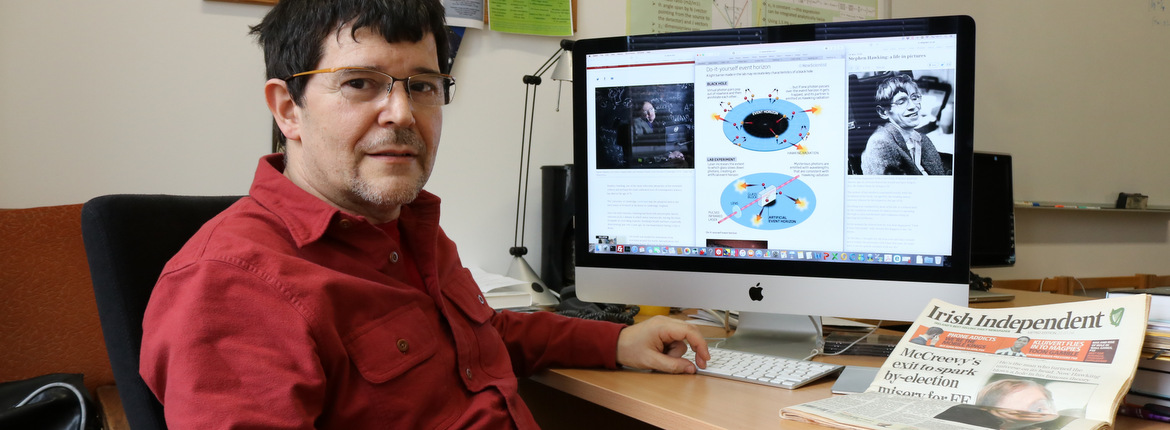
László Árpád Gergely, professor at the Institute of Physics at the Faculty of Science and Informatics of SZTE, had the honor to meet Stephen Hawking in person twice. Besides he described the legendary physician’s pioneering work in an astronomical journal. The Szegedien professor uses the black hole thermodynamics elaborated by the recently passed-away physicist on a regular basis.
’I was working at the Institute of Cosmology and Gravitation of the University of Portsmouth, England in 2003. We participated in a conference with a smaller group of researchers in Cambridge when I first saw Stephen Hawking. He was sitting in his wheelchair, guarded by a nurse, while looking around friendly, trying to catch one’s eye; however, as a result of his disease, it was pretty challenging to communicate with him. He was a true legend even back that time: I learnt about the theory of general relativity from his book. I met him in person for the second time at a GR17 Conference (17th International Conference on General Relativity and Gravitation) in Dublin. Hawking announced that he had been wrong about black holes and regarding their capacity of absorbing every types of particles’ says László Árpád Gergely, who is examining gravitational waves, black holes and the evolution of the universe. During his research, the professor has already used Hawking’s thermodynamics, the Bekenstein-Hawking formula and Hawking-temperature.
’Without any doubt, he is one of the most significant and diverse characters in modern physics. His findings can only be expounded with adequate professional knowledge. The general public was impressed not only by his science-promoting activity, but also by the contradistinction: him being a prisoner of his own body while studying the secrets of the universe. He was forced to stay ’brief’ all the time’ (his popular book is titled Brief History of Time – the editor) said László Gergely Árpád.
Hawking’s birth and passing align with the scientific history: he was born on January 8 in 1942, the 300th anniversary of the death of astronomer Galilei. He passed away March 14 – which is the international π Day as well – the same day Albert Einstein was born and both scientists died at the age of 76.
SZTEinfo-Anna Bobkó
Translated by Enikő Braun

